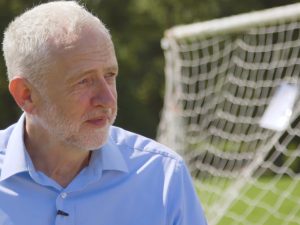Unsurprisingly, the Labour Party government’s headline Autumn Budget plans to address the woeful state of the Department for Work and Pensions (DWP) welfare system amounts to little more than tinkering around at the edges of much bigger problems. This was nowhere so blatant as its half-assed plans for DWP Universal Credit debt deductions.
DWP Universal Credit: deductions announcements
In Labour’s pre-budget leaks to the mainstream media, it had already indicated its plans to change Universal Credit debt deductions.
The DWP makes these deductions to claimants’ payments for a series of things, including:
- Advance payments of Universal Credit
- Rent arrears to landlords
- Utility bills like gas, water, and electric
- Tax Credit overpayments
Crucially, until now, it could take up to 25% of a claimant’s monthly Universal Credit payment to pay off these debts. Of course, it has meant the DWP pushing people on woefully inadequate Universal Credit rates already, into even greater hardship.
However, an anonymous Whitehall source went to Labour bootlickers the Guardian ahead of the budget to break the news that the government is gearing up to change this. It had reported how Labour would reduce deductions the DWP can take on monthly payments to 15%.
As it wrote, this also means that:
The move would in effect allow claimants to repay debts over a longer period.
However, it will extend claimant’s periods of indebtedness, instead of simply removing the debt:
The Fair Repayment Rate would of course be welcome but spreading payments over a longer period of time doesn’t remove the debt meanwhile the 5-week wait for #UniversalCredit and other drivers of indebtedness and poverty remain in place @patrickjbutler https://t.co/32M0pEg9sq
— Sabine Goodwin (@sabineegoodwin) October 26, 2024
What’s more, dutiful lapdog that it is, the Guardian crooned over the so-called £420 “budget boost” it signalled for claimants. In reality of course, it’s no such thing:
Fair Repayment Rate
Reducing the monthly cap on universal credit deductions from 25% to 15% is extremely welcome and will help – but calling it a £420 “budget boost” is desperate optics for ableist Labour. It’s just extending loan repayments.
— Dr Jay Watts (@Shrink_at_Large) October 26, 2024
Now, Reeves has laid this out to parliament in her Autumn Budget announcement – as the party should really have done all along.
So, like clockwork, she said that:
I can today announce that we are introducing a new Fair Repayment Rate to reduce the level of debt repayments that can be taken from a household’s Universal Credit payment each month from 25% to 15% of their standard allowance.
This means that 1.2 million of the poorest households will keep more of their award each month lifting children out of poverty and those who benefit will gain an average of £420 a year.
Half-measures on debt deductions
Some anti-poverty campaign groups have welcomed the DWP Universal Credit debt deductions move. It will of course mean claimants in debt arrears will have more of their Universal Credit each month.
However, it’s not exactly something to write home about. This is because in reality, it does nothing to address the issues at the heart of DWP Universal Credit debt deductions – or in fact, the problematic deductions themselves.
For one, there’s the ridiculous five-week wait. That is, the fact claimants have to wait a minimum of five weeks for their first Universal Credit payment. Unsurprisingly, it’s one of the key factors putting people into this debt arrears in the first place.
Things the Labour government probably wouldn’t want you to be shouting about on this right now? The findings on the five-week-wait and debt in its sudden 30-odd report drop earlier this month I imagine.
One of these the Canary looked at concerned uptake of the Universal Credit advance payment. This is in effect, an interest-free advance loan on the benefit, which it forces claimants to pay back over the course of two years. Partly of course, this is what its new lowered deductions and longer-term payment options will address.
However, the DWP report underscored how the five-week wait itself shortchanged claimants. In particular, even with these advance payments, people didn’t have enough to afford BASIC necessities. This was because, while the advance payment could be anywhere up to a full months DWP Universal Credit – this would have to last them a minimum of five weeks. And after all that, the DWP would apply deductions to claw back the payment as well.
What’s more, it highlighted how the DWP’s mandatory migration over to Universal Credit was forcing claimants to take it up as well. And that’s another issue too. As the Resolution Foundation’s Alex Clegg highlighted on X, the DWP is also wielding deductions to hit legacy Tax Credit debts when people shift over:
… and it doesn’t change the features of UC that have caused deductions to be more prominent than in the legacy system: the 5-week wait for the first payment, and DWP taking on old Tax Credit debts when recipients migrate to UC.
— Alex Clegg (@Alex__Clegg) October 28, 2024
So, where was Reeves on the DWP’s OWN machinery saddling benefit claimants with this debt in the first instance? Tumbleweed.
Shambolic and punitive DWP processes still in place
In fact, Reeve’s budget also said nothing on the catastrophic shamble that is the DWP’s managed migration process at all. Essentially, this is the department’s disastrous decision to drive people over to Universal Credit from old-style benefits. This is because it is phasing these out.
However, as the Canary’s Steve Topple had predicted, it has meant the DWP stripping nearly a quarter of old-style claimants – over 280,000 people – of their benefits. Nothing to redress this, nothing to suggest it’s going to pause the continuing roll-out while it figures out how to fix the DWP and Tory government’s gargantuan cock-up.
Other notable omissions included the two-child limit on benefits, naturally. Of course, after months of refusing to budge on this, it was pretty much a given. However, there was no small amount of irony that during the preceding PMQs Starmer answered a question on tackling the causes of child poverty with his usual stock guff about the upcoming Child Poverty Taskforce. Evidently, lifting kids out of poverty isn’t the urgent order of the day.
Nor did Reeve’s deign to mention the punitive benefit cap pushing people into poverty. The department’s own latest figures showed that as of May 2024, it had capped 123,000 households benefit payments. Significantly, 87% of these – 110,000 households had children living in them.
Moreover, it was a 61% increase on the three months leading up to that. Largely, this was down to the government’s failure to uprate the cap in line with inflation. In other words, the cap stayed the same, but the cost of living went up.
And that’s not to mention that it’s leaving some families with as little as £3 per person to live on a day. That’s not even enough to buy you a standard coffee at Costa. But again, Labour offered no plans for ditching this callous policy.
DWP Universal Credit: cold comfort from a callous chancellor
In short, Labour’s DWP Universal Credit deduction shake-up is a piss-take when all these issues are staring them right in the face:
Reducing maximum debt deductions from Universal Credit, increasing the earnings threshold for Carers Allowance & extending the Household Support Fund are all welcome, but none really address the fundamental inadequacy of our social security system & the knock-on impact of this
— Tom Pollard (@PollardTom) October 30, 2024
Lower debt deductions in UC are a welcome step, but without reform to the benefit cap as well we still have big holes in the safety net #Budget2024
— Alfie Stirling (@alfie_stirling) October 30, 2024
It could also, you know, make DWP Universal Credit enough for people to live on in the first place. After years of the Tories failing to raise this with inflation, claimants can’t even afford the basics, let alone a decent quality of life:
Ensuring Universal Credit payments keep pace with the cost of living
Reducing the cap on UC deductions is an important step. But by ensuring those in receipt of payments can afford essentials like rent, food and heating, the government would lift over 1m people out of poverty.
— People’s Health Trust (@Peoples_health) October 30, 2024
Nope, a 2% rise in April – so more paltry increases that do nothing to address years of real-terms paycuts.
CEO of anti-poverty charity Turn2us Thomas Lawson called the government out on all this:
Today’s Budget doesn’t go far enough. Our broken social security system is trapping millions of us in poverty…The government needs to act. Scrap the two-child limit, scrap the 5-week wait, and raise Universal Credit to cover essentials. It’s time for a social security system that’s compassionate, free from stigma, and shaped by people with lived experience.
In short, Reeves’ speech was cold comfort to claimants its DWP continue to hit with the needless five-week wait, the two-child benefit limit, and the benefit cap. As for the now over 280,000 people its brutal mass migration process has left without benefits?
Not a word.
On top of this, it’s planning to plough ahead with cruel WCA reforms. This will deny benefits to nearly half a million chronically ill and disabled people.
Of course, it’s not really surprising that this neoliberal austerity government hasn’t the balls for meaningful action. Needless to say, it certainly wasn’t ready to admit that it’s the DWP and welfare system itself that’s fundamentally not fit for purpose.
Featured image via the House of Commons and the Canary




